US military warns Obama troop drawdown plan 'risky'
Mullen says Obama's plan 'more aggressive and incur more risks'.
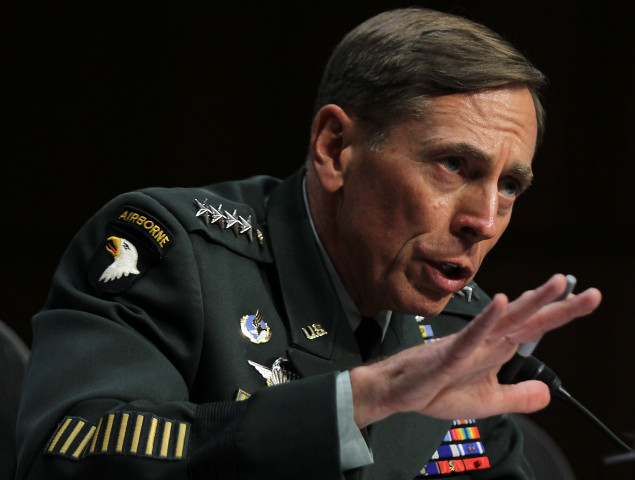
General David Petraeus, the top US commander in Afghanistan, said Obama's plan to withdraw nearly a third of the roughly 99,000 US troops in Afghanistan by the end of next summer was a "more aggressive formulation" than he had recommended.
Admiral Mike Mullen, chairman of the US military's Joint Chiefs of Staff, went further.
"The president's decisions are more aggressive and incur more risk than I was originally prepared to accept," Mullen told a House of Representatives committee hearing in his first comments on Obama's plan.
Mullen later said the risks were still manageable and would not jeopardise the overall military mission. But analysts said the risks of failure might be rising as the US withdrew despite a stubborn Taliban enemy, rampant corruption and persistent militant safe havens in Pakistan.
The military's comments, while carefully phrased, were an unusually blunt admission of the Pentagon's resistance to the kind of speedy Afghan drawdown that Obama settled upon. Military leaders had lobbied privately for more time, and outgoing Defense Secretary Robert Gates publicly said any troop withdrawal should be modest.
Petraeus, at a hearing to become CIA director, acknowledged Obama had to take into account "broader considerations" than military commanders did -- an apparent reference to collapsing domestic support for the war in the face of US economic troubles.
Calls to end the war have accelerated in the wake of the May 2 US raid that killed al Qaeda leader Osama bin Laden.
"The fact is that there has never been a military commander in history who has had all the forces he would like to have for all the time, with all the money," Petraeus said.
In Kabul, Afghan President Hamid Karzai, Washington's ally in a relationship made tense by allegations of incompetence and corruption, welcomed the plan for a gradual pullout and said Afghans increasingly trusted their security forces.
European nations that have contributed troops to the military effort against the Afghan Taliban insurgency said they would also proceed with already-planned phased reductions. They included France, Germany, Poland and Spain.
But the Taliban, resurgent a decade after being toppled from power by US-led forces following the Sept. 11 attacks, dismissed the announcement and said only a full, immediate withdrawal of foreign forces could stop "pointless bloodshed."
The group rejected any suggestion of US military gains.
Rush to the exits?
In a prime-time televised appearance on Wednesday, Obama said he would withdraw 10,000 troops from Afghanistan by the end of 2011, and a further 23,000 by the end of next summer. Remaining troops would be steadily withdrawn after that time.
Nearly 70,000 US soldiers will, however, remain in Afghanistan even after the cuts announced by Obama, about twice the number when he took office in January 2009.
Obama's decision divided Congress, with some lawmakers demanding a more rapid pullout and others branding Obama's drawdown a dangerous political move to appease his Democratic base ahead of the 2012 presidential election.
"The bottom line is no number of troops will resolve the challenge of Afghanistan," John Kerry, the influential Democratic senator, said on Thursday.
Senator John McCain, a Republican who lost to Obama in the 2008 election, said "I think we're taking a huge unnecessary risk."
Republican Senator Charles Grassley called the pullout pace "very dangerous" and said he understood that Petraeus had recommended a slower withdrawal than the one Obama announced.
"The president's only consideration in all of this should be what is best for our national security, not finding some halfway point" with war critics, Grassley told Reuters. The White House said it was pleased with the reaction.
Undersecretary of Defense Michele Flournoy, appearing at the committee hearing alongside Mullen, said, "Clearly, this is not a 'rush to the exits' that will jeopardize our security gains."
Mullen also played down the possibility that security gains could be easily reversed. Bringing home troops offered some benefits, he said, including reinforcing the goal of putting Afghans in control of their own security by the end of 2014.
"The truth is, we would have run other kinds of risks by keeping more forces in Afghanistan longer. We would have made it easier for the Karzai administration to increase their dependency on us," Mullen said.
The Taliban has been pushed out of some areas of their southern heartland, but the insurgency has intensified along Afghanistan's eastern border with Pakistan, and US commanders have wanted to shift their focus to that area.
Secretary of State Hillary Clinton, appearing separately before a Senate committee, acknowledged there was no military solution to the conflict and said the United States had a broad range of contacts in search of a political resolution.
Asked if there was a possibility for a peace agreement with the Taliban, Clinton said, "I think there is, but I think that we're a long way from knowing what the realistic elements of such an agreement would be."
"I can only stress that we are committed to pursuing it, because it is the only path forward, there is no other path forward. Nobody is strong enough to really assert control," she said.

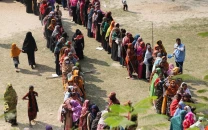

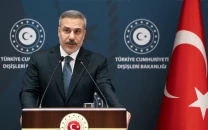
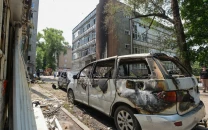
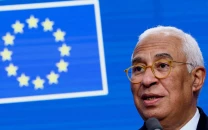
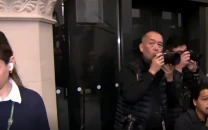












COMMENTS
Comments are moderated and generally will be posted if they are on-topic and not abusive.
For more information, please see our Comments FAQ